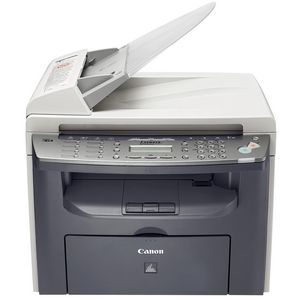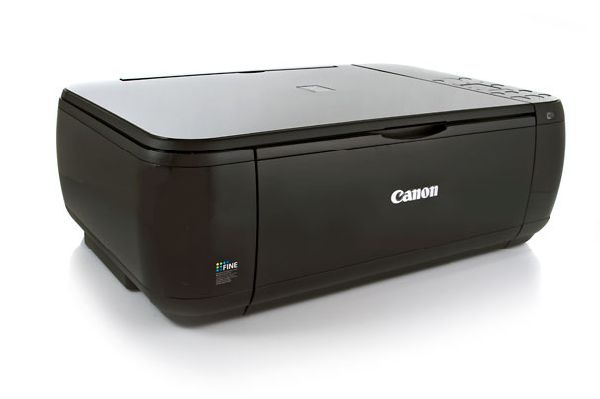Back To School Technology Buyer's Guide
by Zach Throckmorton on August 4, 2011 8:55 PM ESTPrinters
The second peripheral every college student should consider buying is a printer. You might have easy access to a printer in your dorm, or the nearest campus lab might be a hike from your apartment. And you might not finish your paper until 3am, and it might be the end of December and your northern campus is getting hammered by a snowstorm—doing that once was enough to motivate me to save up enough money for a printer!
Printers come in three basic types: laser, inkjet, and all-in-ones. All-in-ones combine a copier, scanner, and printer (either a laser or inkjet) into one device. Inkjet printers are usually the least expensive initially, but the cost of printing (the ink cartridges) is usually higher per page than laser printers. Laser printers can sometimes be quite inexpensive, and while toner cartridges cost more than ink cartridges, they last much longer. The majority of printing done by college students is black and white text, and for that reason, I recommend laser printers over inkjet printers. However, if you won’t be printing that much (say, less than 100 pages per month), an inkjet printer is a viable solution. I particularly like all-in-ones because they often aren’t that much more expensive than dedicated printers and being able to copy and scan at home means fewer trips to the computing center or library—and not getting nickle and dimed for those services, as most colleges charge a per-page fee for them.
Canon's PIXMA ip2702 is an inexpensive inkjet at $34 that can handle occasional printing with ease. Spending more money on a dedicated inkjet printer can yield additional features like wireless printing and higher quality picture printing, but durability and reliability general don't start to improve until you shell out $200+ on a prosumer or commercial grade inkjet. For mostly black and white text, cheaper inkjets are just as good as cheap inkjets.

If you'll be printing out hundreds of pages of text per month, Brother's HL-2240D and Samsung's ML-2525 are great budget options. Both can occasionally be found on sale for $50 or less. Neither of these models are built like tanks, but if you take care of them, they'll last for years (I still use a Samsung ML-2010 that I bought in 2006). Like inkjets, spending more money on a laser printer might mean faster printing, wireless printing, and/or more capacious toner cartridges, but again, these features are not necessary for most college students.

Finally, Canon's PIXMA MP495 and imageCLASS MF4350d are inkjet and laser (respectively) all-in-ones. The MP495 is compact in size and also features wireless printing, while the MF4350d is physically larger (though its footprint is not terribly large, unlike many dedicated scanners). The MP495 is currently on sale for less than $60, so unless you're very budget-conscious, the added scanning and copying capabilities are definitely worth the $20 extra compared to the PIXMA ip2702. At less than $100, the MF4250d is very competitively priced compared to other laserjet all-in-ones. Regardless of whether you use a dedicated inkjet or laser printer, or some sort of all-in-one, keep in mind that you can dramatically lower printing costs by refilling ink and toner cartridges.
If you'd rather read papers, book chapters, and assignments on a portable device than printing out sheet after sheet of paper, we cover tablets and ereaders on the next page.











94 Comments
View All Comments
Freakie - Saturday, August 27, 2011 - link
Kind of surprised to see you guys leave out higher end ASUS computers and Clevo barebones. ASUS has the best warranties out there, hands down, and their prices for the whole package are amazing when you factor that in.And then you have bang vs buck. You get much more when you go with a Sager and buy Windows with your student discount (Win 7 Pro direct from Microsoft, not the school, for $30). And the repair-ability of Clevo barebones makes any problems after your warranty a LOT cheaper and they are built to be user-serviceable. ASUS laptops also have a noticeably higher amount of user-serviceability than most other OEMs. Buying from a OEM in general when it comes to laptops is just a bad idea, from Apple to Voodoo, your overall experience is gonna suck a majority of the time when compared to ODMs.
harth234 - Friday, August 9, 2013 - link
Could we get another one of these for 2013?ternerdaniel - Monday, August 30, 2021 - link
Regardless of the specialty in which the student studies, a small high-performance laptop with parameters that meet the tasks with which he works will be very useful. With such a gadget, you can quickly make informative notes right during a lecture, work on various projects and presentations, use the literature you need during your studies without wasting time visiting libraries, prepare any test papers, essays, and abstracts in printed form. Also for studies, you will need an interesting educational resource https://bestessayservicesradar.com/best-essay-writ... which contains useful materials for studies. And in some fields of study, such as IT, law, and economics, computers are simply essential in the learning process.kath1mack - Wednesday, April 13, 2022 - link
Oh, yeah! We are very lucky now that have all these technologies. My teachers always require a bibliography section which takes a lot of time to make.